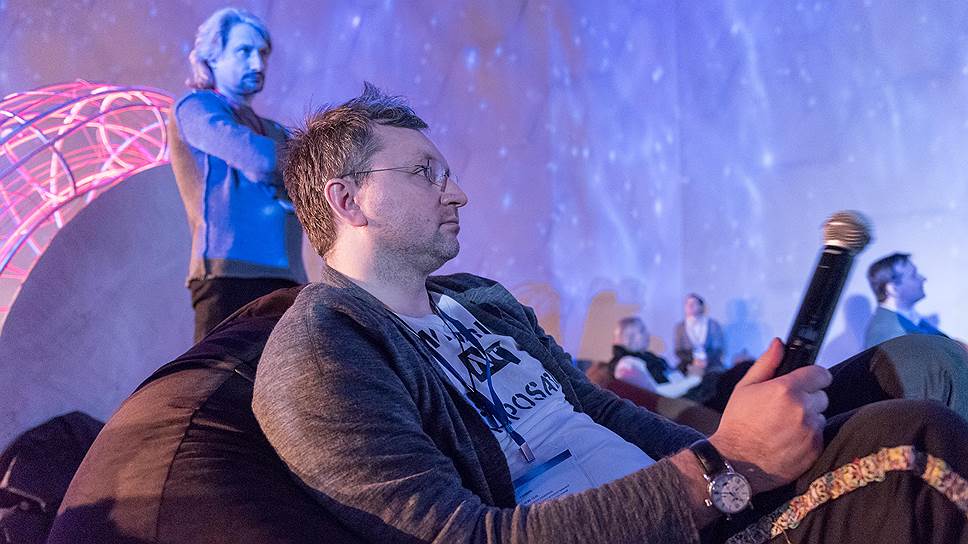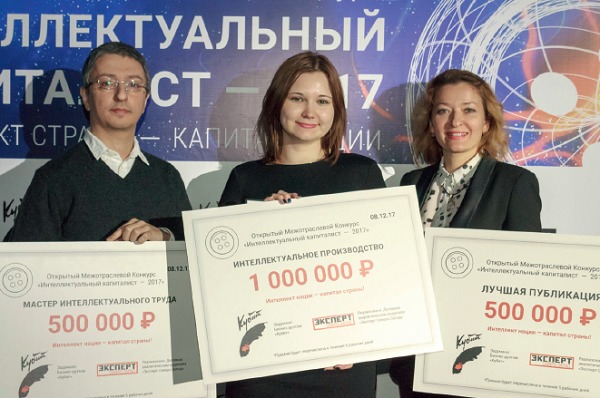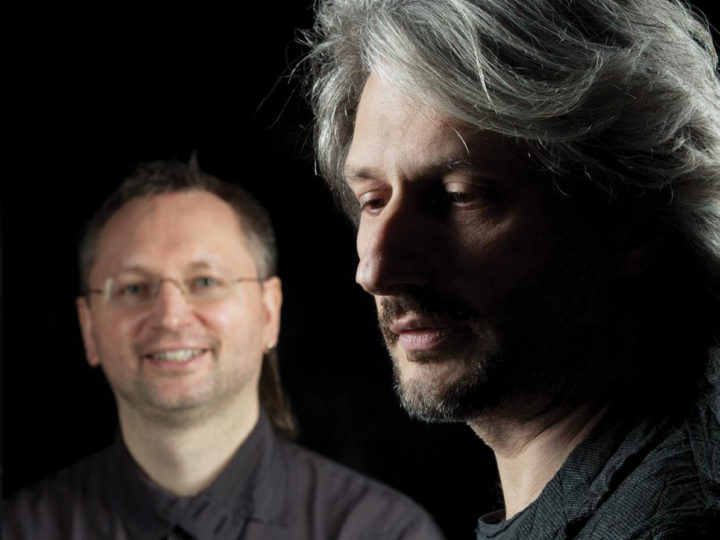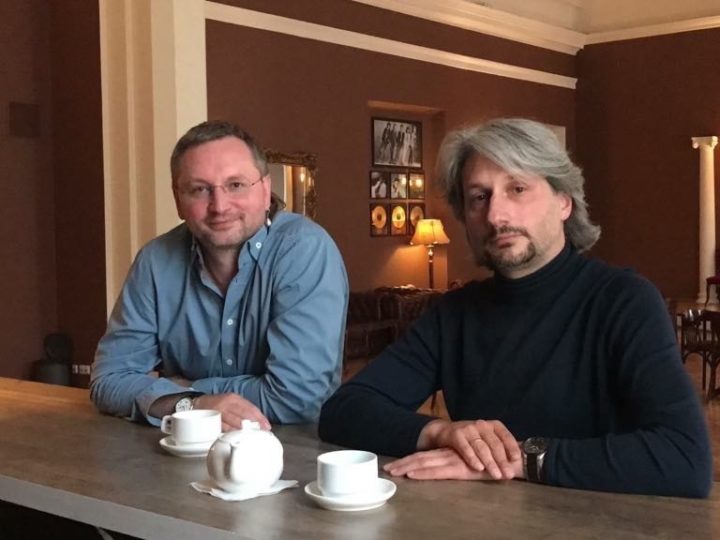
The trends in formation and development of the intellectual services sector in Russia, including the specifics of management, scaling, advertising and business branding became the key topics of the II All-Russian inter-industry live conference “Intelligent Service – 2017: Management of Intellectual Production”. The project was thought of and first implemented last year by the Qubit Business Duet in the persons of Valery Platonov and Pavel Savchenko. The 2017 event has been organised by Kommersant Publishing House.
Marina Sklyarenko
In the early XXI century, the “intellectual” economy in the developed countries takes on real features. It is believed that by this century middle only such economies will be considered advanced as opposed to “service” and “industrial” ones. And the intellectual services sector is already becoming the backbone. The main trend is obvious and inevitable, the conference participants reached the single conclusion: if Russia does not want to find itself beyond the global mainstream again, it is necessary to develop the intelligent services. “The basis of knowledge-intensive economy is the production of knowledge. In the new economy we emphasize the K2B sector (Knowledge to Business or literally “serving the business with knowledge”). Today, representatives of intellectual labour in business have to recognize themselves as an economic force – we call such people intellectual capitalists,” said Valery Platonov, the member of the Qubit Business Duet.”
The intellectual services sector cannot be called radically new: the Big Four companies are large international players rendering intellectual services for at least a decade. In the Russian market, the sector of intellectual services for business most of all renders services of consulting companies.
Now the domestic K2B is undergoing a reformatting stage and moving to a new stage of active development and growth. Noting the common features of all intellectual services in her speech, Marina Doroshenko, Professor of the Department of Applied Institutional Economics of Moscow State University, points out that they cannot be replicated or produced en masse. The conventional conveyor for production neither contributes nor even prevents any intelligence applications from the performer. The mass production of intellectual services has a certain basic technological core, but a shell plays a special role, because it is tailored for a specific customer and just requires application of intellectual efforts. The active assistance of the customer is of great importance for the service quality, because the customer knows his needs exactly and becomes, in fact, the second producer, as well as the high professional qualification of the service producer.
Intellectual Hunting
The demand for intellectual professionals is growing every year. There are not so many people with high motivation and potential, a good education, the ability to achieve specific results in the open labour market, and they are those very are hunted today. Yulia Sakharova, Director of HeadHunter’s Northwest, outlines the current requirements for intellectual labor specialists in business and highlights skills in working with IT systems, big data, analytics, cross-functional knowledge, the ability to work cross-sectorally, skills in development, sales, and product promotion. According to forecasts, over next two years, artificial intelligence and Big Data will begin to be actively used in measuring the employees talents. Already, the importance of inter-industry communication is growing, new professions are emerging. “In 2012, HeadHunter posted only seven jobs for data scientists, and there were already 650 in 2017. According to hh.ru, IT, Internet, Telecom is consistently ranked second in the number of vacancies placed in St. Petersburg – 16% of the total number of job offers in the third quarter of 2017. At the same time, the hh-index in October was 2.9 – that is, on average, there are three resumes for one vacancy,” Ms. Sakharova cited specific figures.
Issues of intellectual production management became the discussion topic. The classical regular management used in production business processes in intellectual services is ineffective. Experts have agreed that K2B companies need more democratic forms of management, including wide horizontal connections, new formats for project development, and communications accessible for employees. Moreover, the motivation of workers in intellectual services largely depends on the level of the corporate culture and the business process structure in an individual company, and not only on labour remuneration. An important aspect in the management of creative personnel is creation of the space, Stanislav Tolstoy, the managing partner of PSB Group, is sure. A striking example is the success of Google, where they pay great attention to the workspace designing. Instead of the classic open-space already departing into oblivion, you should create a unique environment for a certain team. “There is an opinion that an uncomfortable environment is better to make people to create. I believe that perhaps this spurs ambitions, but working in such an environment is much more difficult,” said Mr. Tolstoy.
Ride the Wave
The K2B sector opens up new horizons in the knowledge-intensive economy. But in a number of areas it is not so easy to choose a profitable one. Sergei Isaev, CEO of Data Fabric, noted that it is hard to sell, for example, consulting services in Russia, much more difficult than in the West: “The Russian manager considers himself the smartest, and is sure that need no new knowledge. The standard opinion: how can serious money be paid to person whose result is a piece of paper listing rights and wrongs, and what should be done to make things better? ” complained Mr. Isaev.
Ms. Doroshenko sees a lot of “windows of opportunity” for the intellectual services sector in the emerging global trend towards reindustrialization which important feature is the so-called “services overgrowing”. In the new economy, a significant, maybe even the main, share of added value falls not on the basic production process, but the related and subsequent links in the value chain: engineering, IT services, management practices, marketing, advertising. And the more intelligent such services are, the more added value they can produce.
The conference participants have also discussed the opportunities and risks in the development of the intellectual services market. Stanislav Tolstoy placed emphases on the fact that the market will grow at the expense of individual segments. Among the breakthroughs there is, for example, the digitalization technology market. At the same time, Mr. Isaev confirmed the demand for intellectual services due to the information systems operation, including those riding the wave of “hype” around artificial intellect. “The systems create added value to the existing data, can detect something not obvious while observing the entire volume of data that is inaccessible to a person, and this is in demand in various fields,” Mr. Isaev reasoned. So, in the banking sector, the introduction of “smart” information systems reduces operating costs due to reducing the need for human labour and work intensification. The growth of intellectual information systems over the past year is difficult to evaluate as a percentage: there has been a significant jump from zero to one. “Before it was just technologies and people applying them, now the cases which can be solved using these technologies have just begun to develop. And the business, understanding what challenges can be solved, what funds can be saved or earned, selects these systems for implementation,” Sergei Isaev is sure.
Even the inert government sector still has to adapt to the demands of times, Ms. Doroshenko emphasized. The trend towards a gradual withdrawal the industrial conveyor approach has become noticeable even in such traditionally conservative sectors as education and healthcare, and new prospects for interaction between the state and intellectual business open up here.
Matter of Packing
The conference second day was devoted to the issues of branding, marketing, PR-support of intellectual services. As for intellectual services, it is often very hard to explain to a potential buyer what kind of product you are selling and what its value is, the panel members said. “Companies have to learn how to convey the value of the service to the consumer correctly. The most effective way is to apply professional advertising approaches,” commented Nikita Pryadko, Creative Director of the Golden Section advertising agency.
It is impossible to select special unique tools in creating advertising of intellectual services, the conference participants noted. First of all, this is an analysis of the target audience needs plus a creative approach to provision of services to consumers. “In the practice of our company, a successful case for an educational project promotion, which won a number of professional awards, with a non-standard approach is illustrative: then marathons in social networks started only to exist. He showed tenfold effectiveness as compared to the budget,” Mr. Pryadko said. Thus, the creative is not about huge expenses, but about how to get the maximum out of each tool, even from inexpensive targeted advertising. In case of promotion of intellectual services, the funds for advertising do not determine its effectiveness.
“Intelligent services are, first of all, a very structural product requiring a scrupulous approach to both a strategy and implementation. A brand is not only a set of associations and an image in the minds of the target audience, but also a working business, effective and with its development prospects. It should be understandable, predictable, capable of changes,” emphasized in her speech Elena Yufereva, Director General of Brandson Branding Agency, a member of the Board of ABKR. In the field of intelligent services, the focus is shifting from communication and bringing benefits to the construction of a mechanism for continuous generation of these benefits.
“In the field of intellectual products, the focus on development of a brand platform based on the strategic vision of business owners is important, since an intellectual service is always a “bird’s eye panorama.” At the same time, the brand must solve tactical problems not directly, but through the ecosystem of the business strategic goals. The very communications should be very targeted, precisely calibrated,” Ms. Yufereva developed the idea.
The conference was held as a polylogue, foresight sessions and workshops for team work for search for solutions and answers “right here and right now.” Pavel Savchenko from Qubit Business Duet noted that such a business event approach is a know-how in Russia, it should set a new wave for such events. “It’s time to leave “black-tie events” and move on to an equal footing format, where everyone can become a speaker and share his/her knowledge and experience with other participants,” added Valery Platonov, his companion . The event venue was appropriate – the creative space “Lumiere Hall” under the vaults of the 19th century gasholder. The organisers plan the conference to become traditional: in Russia, K2B is still a new direction which needs to be popularized to join the industry representatives for a lively discussion of topical issues.




